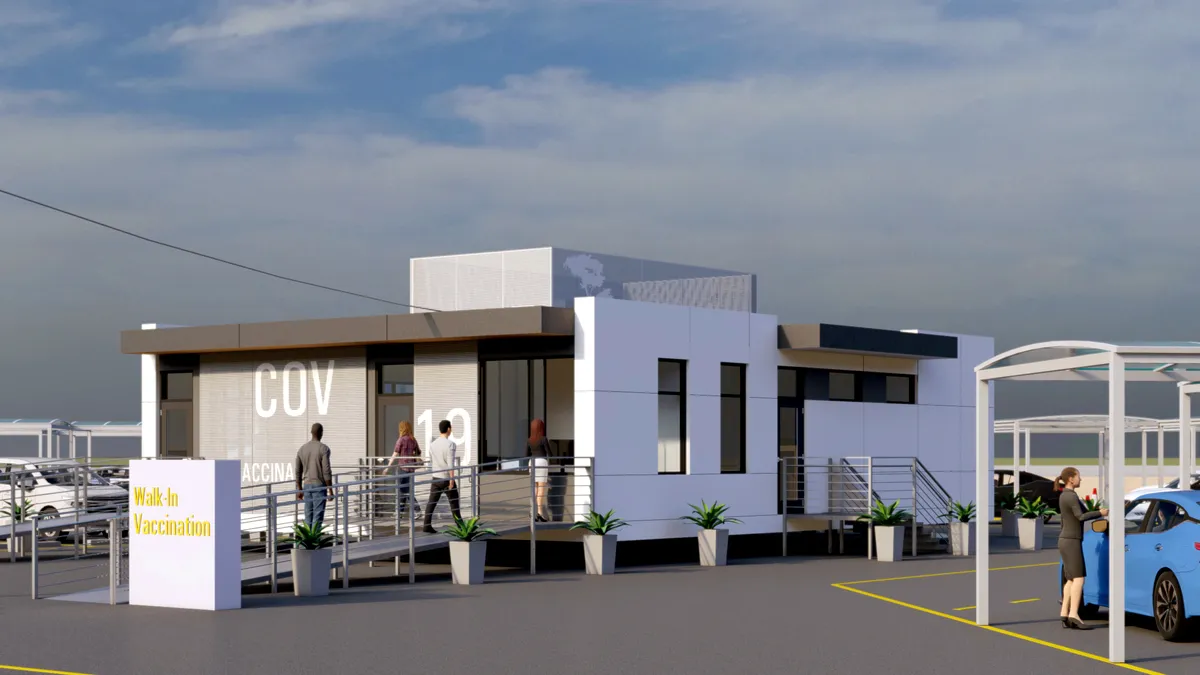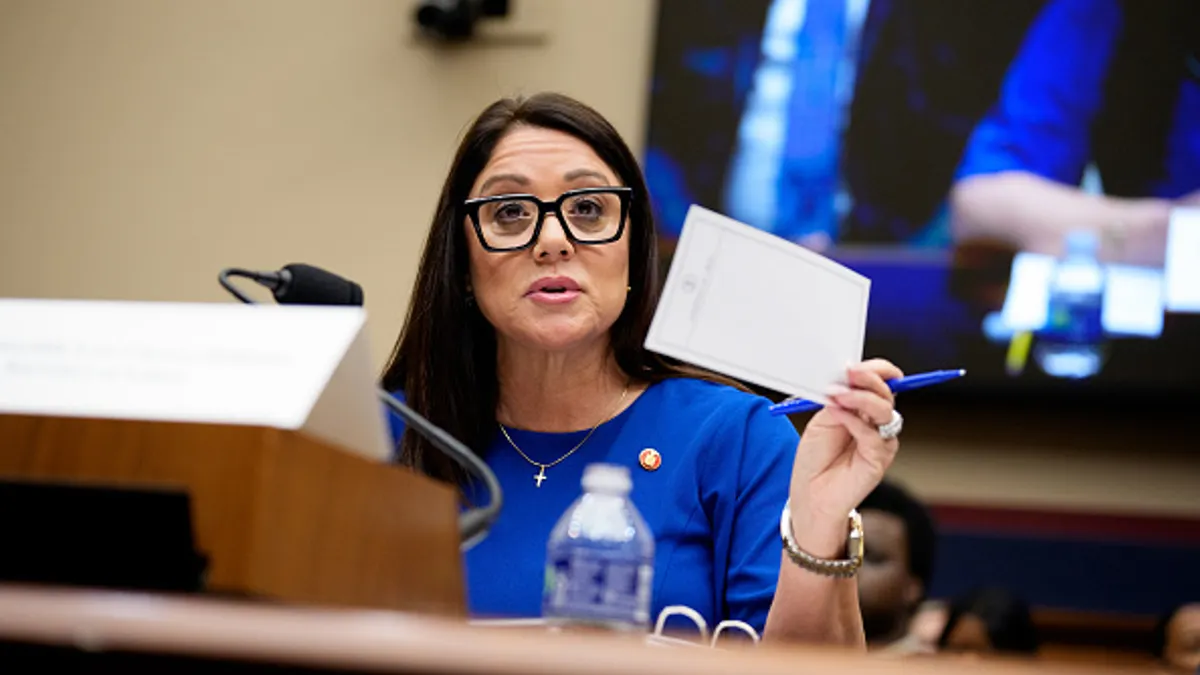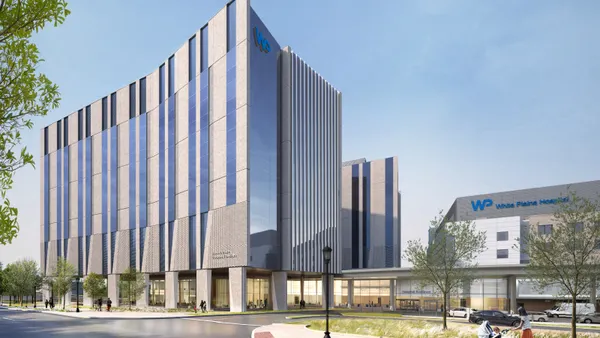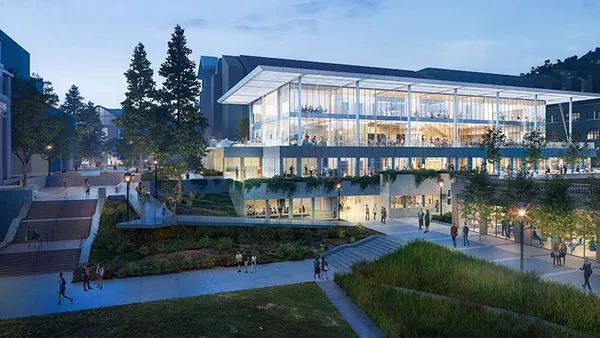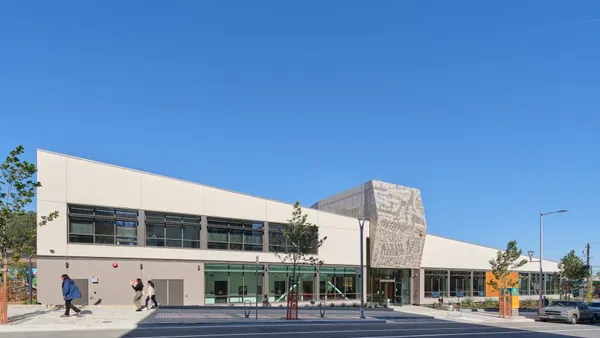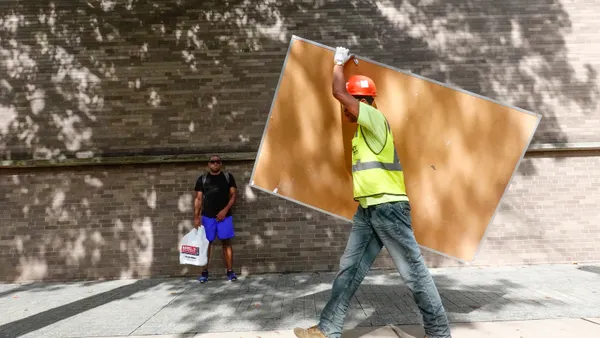Dive Brief:
- Appleton, Wisconsin-based contractor The Boldt Co. and architecture firm Boulder Associates are bringing a new modular system to market that can provide healthcare networks, governments and retailers a safe, fast solution for administering the COVID-19 vaccine.
- Prefabricated VaxMod units can deliver 39% more vaccines per hour than model vaccine clinics identified by the Centers for Disease Control and Prevention with 7% fewer staff, according to a release. The system can vaccinate upwards of 1,100 patients per eight-hour shift and can work with patients on foot and in vehicles.
- The modules are just one in a series of factory-built units developed by U.S. contractors to help mitigate the effects of the coronavirus outbreak.
Dive Insight:
The modules can function as individual, free-standing units, or connect with segregated spaces for healthcare workers and patients, Romano Nickerson, principal with Boulder Associates, said in the announcement.
“Rather than converting gymnasiums or expo centers into vaccination clinics, VaxMod features an intentional workflow designed to minimize the time it takes to administer a shot safely and optimize the number of vaccines per shift," he said.
The units also feature private treatment areas and allow for owner selection of interior finishes and exterior signage.
The team behind the units sees a future beyond COVID-19. VaxMod modules could be modified to provide rapid testing and screening, reducing hospital visits. Additionally, the modules could likely provide vaccinations like those for the seasonal flu, travel, nonscheduled child vaccines or those recommended for college or work.
Boldt offers another type of modular system, the STAAT Mod, which is designed to help hospitals and healthcare centers expand their traditional inpatient capacity or critical care space. The units can be operated with or without airborne infection isolation rooms that provide increased safety for both patients and caregivers.
The units have a 20-year lifespan, making them a good option to help support a hospital’s longer-term strategy, said Kurt Spiering, principal and healthcare market sector leader at architecture firm HGA, which designed the modules.
“It can be adapted and assembled in many different arrangements and answers the escalating demand for flexible treatment space as a result of the COVID-19 pandemic,” he said in a statement.
Other U.S. contractors have developed modular solutions to help fight the spread of the novel coronavirus. The WorkWell modular system from Turner Construction Co. and the Citizen Care Pod from PCL provide safe settings for health screenings at entrances to buildings and public spaces where infection control is a concern.



